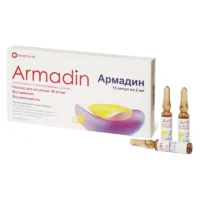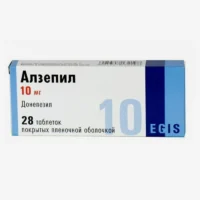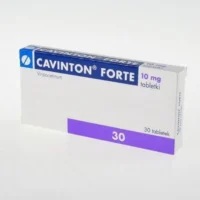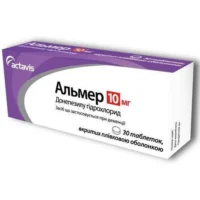Description
Rispetril (Risperidone) Oral Solution 1 mg/ml. 30 ml Vial
Ingredients
- Active ingredient: Risperidone
- Other ingredients: Purified water, glycerin, xanthan gum, sodium citrate, citric acid, sodium benzoate, sucralose, and natural and artificial flavors.
Dosage
Dosage: The usual starting dose is 0.5 mg once daily, which can be increased gradually. The maximum recommended dose is 8 mg per day.
Indications
- Indicated for: Treatment of schizophrenia in adults and adolescents, bipolar disorder, and irritability associated with autistic disorder in children.
Contraindications
- Do not use if: Allergic to risperidone or any ingredients in Rispetril. Patients with dementia-related psychosis are at an increased risk of death when taking antipsychotic drugs.
Directions
- Administration: Administer orally once daily, with or without food. Use the provided dosing syringe for accurate measurement. Do not mix with any liquids or other medications.
Scientific Evidence
Risperidone, the active ingredient in Rispetril, is a second-generation antipsychotic that works by blocking dopamine and serotonin receptors in the brain. Studies have shown its efficacy in managing symptoms of schizophrenia and bipolar disorder. Research by Leucht et al. (2013) demonstrated the effectiveness of risperidone in reducing psychotic symptoms compared to placebo.
Additional Information
- Rispetril oral solution provides a convenient dosing option for patients who have difficulty swallowing tablets.
- It is important to monitor for side effects such as weight gain, sedation, and extrapyramidal symptoms.
- Regular follow-up with a healthcare provider is essential to assess the treatment’s effectiveness and adjust the dosage if needed.
Risperidone’s pharmacological action involves antagonism of dopamine D2 receptors and serotonin 5-HT2 receptors, leading to its antipsychotic effects. It also has affinity for adrenergic, histaminergic, and muscarinic receptors, contributing to its side effect profile.
Clinical trials have shown risperidone to be effective in reducing both positive and negative symptoms of schizophrenia. It has also been compared to other antipsychotic medications, demonstrating similar efficacy with potentially fewer side effects in certain patient populations.





